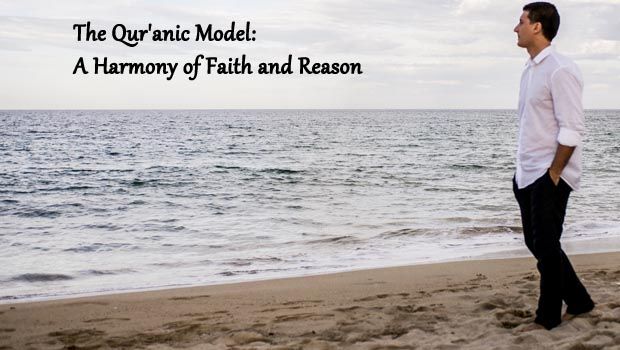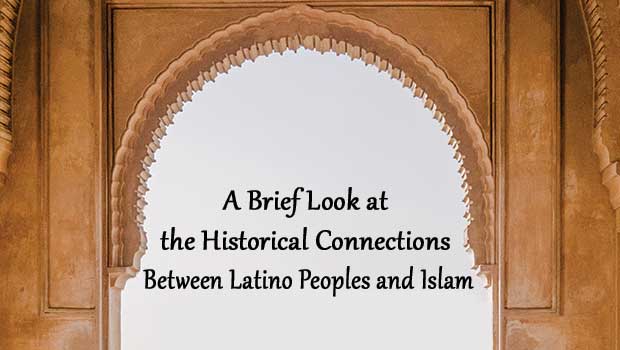John Locke, in his book “An Essay Concerning Human Understanding,” suggests: “For till it be resolved how far we are to be guided by reason, and how far by faith, we shall in vain dispute, and endeavor to convince one another in matters of religion.” But there are more fundamental questions: Do faith and reason have to always be in conflict? Can God’s existence and attributes be established by reason alone or faith alone? Why is it that the exponents of reason complain of restraint by exponents of faith? And why do exponents of faith complain of being dismissed or marginalized by the exponents of reason? Is there a boundary for each, and under what circumstances can they combine and interact?
The Qur’an, from its very inception, guides our thoughts towards the unseen, and at the same time it engages us in things that are physical and that appeal to reason
Since early times until now great philosophers, thinkers, and religious scholars have tried their best to tackle these questions. Many theories and concepts have been posited but ultimately there still appears to be a conflict between faith and reason. Some conclude that if you believe and have faith, you need not look for any intellectual conviction regarding your belief. While others say that all evidence for what is reality must be rational and can only be explained by using logical argument and what is observable to the senses. But a good argument can be made that the question of faith versus reason goes back to some larger issues in metaphysics such as belief in the unseen. Is there something beyond the physical world that humans must accept as real even though they cannot see or measure it? If so, what is it? Those who believe in an unseen realm find in faith their primary source for understanding reality. On the other hand, those who disbelieve in divine and transcendental realities will surely deny faith and reject revelation and, thus, rely on reason as the only means to determine reality.
As Muslims we believe that beyond this physical world and the physical things we see around us is a world of the unseen, or ghaib. In fact, The Qur’an, from its very inception, guides our thoughts towards the unseen, and at the same time it engages us in things that are physical and that appeal to reason. Allah SWT says, “Alif, Lam, Meem. This is the Book about which there is no doubt, a guidance for those conscious of Allah, who believe in the unseen, establish prayer, and spend out of what We have provided for them” (Qur’an 2:1-3). In these verses Allah SWT combines faith and belief in the unseen as first and foremost elements of guidance. Then come the practical attributes of that faith and belief such as performing prayers and helping others who are in need.
In fact, praying to the Lord and giving charity to the needy can be reasoned out once a person has attained to faith. Nothing combines faith and reason more than the acts of worship. One who prays goes through physical motions that make sense from a spiritual point of view, from standing in qiyaam to bowing in ruku to prostrating in sujood. But while these physical movements and positions metaphorically direct the mind and heart beyond this world to a higher realm, toward sincere surrender to Allah SWT, they are firmly grounded in a here-and-now sense experience. And beyond that, the prayer is structured, deliberate, and systematic in motivating a person to think and reflect. Similarly, a person who helps someone in need does so both at a physical level as well as within a spiritual context.
The human being is equipped to observe, contemplate, understand, and draw conclusions. Thus, the Qur’an challenges man to use his faculty of reasoning to recognize and worship the One and Only God – Allah SWT
It should be mentioned here that out of the six pillars of Imaan only two have a physical correlative, while the rest are based solely on faith in the unseen. Belief in Allah SWT, the Angels, the Last Day, and Qadr are all metaphysical in nature. The Prophets were physical beings during their lifetimes, but for us today, only belief in the Books, and for us specifically the Qur’an, has a physical counterpart that we can touch, see, and investigate firsthand. In fact, the Qur’an is a book that challenges us to read, to study, to contemplate, and to use our reason, all leading us to faith in the unseen.
The Qur’an teaches that Allah SWT, the Creator of everything, has created the means, and He is Lord and Controller of the means, or what is known as the Rabbul-Asbaab. This is what makes the Qur’an so powerful in its argument that both faith and reason are necessary and work in harmony. In Islam, reason is not a separate entity void of any connection to faith. Rather faith and reason work together and complement each other (though faith is higher grade than reason in the ultimate schema) and brings about balance and harmony at the individual level, the societal level, and the global level.
The human being is equipped to observe, contemplate, understand, and draw conclusions. Thus, the Qur’an challenges man to use his faculty of reasoning to recognize and worship the One and Only God – Allah SWT. The Qur’an itself is a unique merging of faith and reason, of religion and philosophy, and there is no contradiction therein. No doubt, reason plays an important role in the quest for truth. Thus, faith and reason in Islam must be, and are, complementary. In fact, the Qur’an repeatedly enjoins human beings to observe the natural world as a way to realize that there must be a Creator: “Have they not looked at the sky above them – how We structured it and adorned it and it has no rifts? And the earth – We spread it out and cast therein firmly-set mountains and and produced therein every kind of beautiful growth, giving insight and a reminder for every servant who turns [to Allah]” (Qur’an 50:6-8). There are so many verses in The Qur’an that challenge man to use his senses and his intellectual faculties to rationally conclude that there is a Creator and, again, through reason, that there is only One God. So we look at creation around us, not in an unthinking way, but by reflection and reason, and recognize the power, the omniscience, the greatness of the Creator.
Indeed, because Allah SWT is All-Knowing, there is a perfect harmony in the universe, and through the use of reason and observation, one’s faith in the divine is fortified and increased. How beautiful is the divine order in Allah’s creation! He SWT says: “And a Sign for them is the night – We withdraw therefrom the day, and behold, they are in darkness. And the sun runs on its fixed course for a term [appointed]. That is the Decree of the All-Mighty, the All-Knowing. And the moon, We have measured for it mansions [to traverse] till it returns like the old dried curved date stalk. It is not for the sun to overtake the moon, nor does the night outstrip the day. They all float, each in an orbit” (Qur’an 36:37-40). The Qur’an then challenges man to examine the verses of the Qur’an and see if he can find any contradiction therein: “Then do they not reflect upon the Qur’an? If it had been from other than Allah, they would have found within it much contradiction” (Qur’an 4:82). It is clear from the above verses that Allah SWT does not ask of the human being a dogmatic and blind faith. In fact, following blindly and without question or intelligent assessment the ways of one’s forefathers is condemned in the Qur’an: “When it is said to them, ‘Come to what Allah has revealed and unto the Messenger,’ they say, ‘Enough for us is that which we found our fathers following,’ even though their fathers had no knowledge whatsoever and no guidance” (Qur’an 5:104). Indeed, it is the intellect that distinguishes man from the rest of created beings.
In almost 50 verses of the Qur’an Allah SWT talks about using the intellect. Further, the word “knowledge” and its derivatives are found over 800 times. In conclusion, both reason and faith are necessary and work in harmony in humanity’s quest for the truth. A proper balance of the two is required in order to fully grasp reality and to fulfill due diligence with regard to worldly and spiritual obligations. The Qur’an has indeed provided us with a good command of both faith and reason and it is up to us to use these blessings to create harmony and peace in the world.






